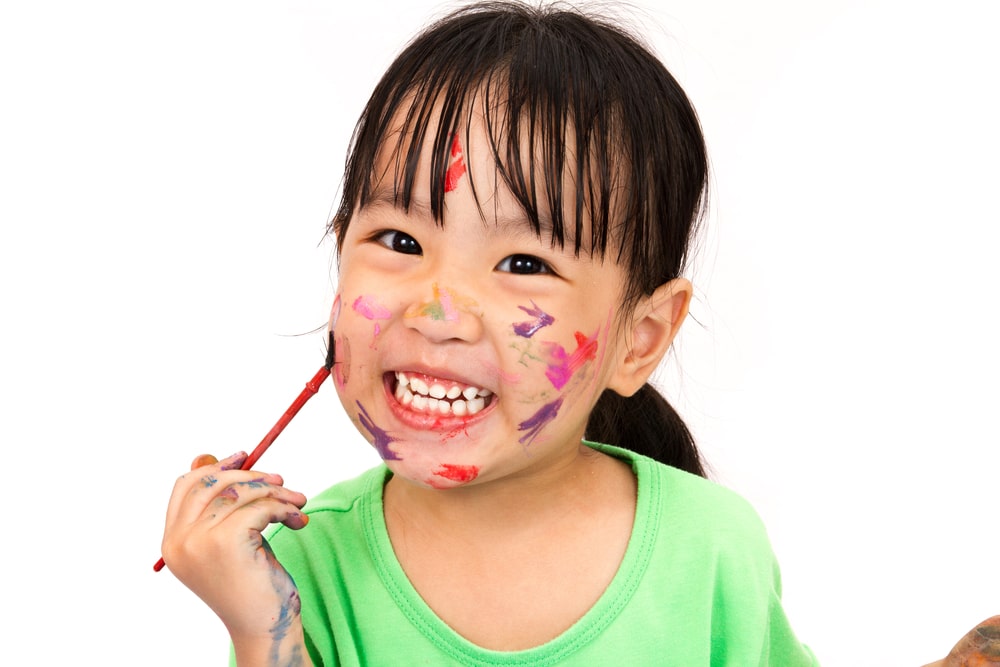
Pastime Paradise: Discuss Your Hobbies in Chinese with 25+ Words and Phrases!
Having hobbies is important.
Hobbies are a way to express yourself, give you something to devote your time to, allow you to escape stressful situations and reconnect with yourself.
When learning Chinese, it only makes sense that you’d want to talk about the things you love doing.
In this guide, you’ll learn over 25 words and phrases for describing your hobbies in Chinese. Plus, we’ll look at three example conversations that you can model in real life.
Contents
- 1. 爱好 (ài hào) — hobby
- 2. 空闲时间 (kòng xián shí jiān) — free time
- 3. 活动 (huó dòng) — activity
- 4. 最喜欢 (zuì xǐ huān) — favorite/most like
- 5. 娱乐活动 (yú lè huó dòng) — entertainment
- 6. 兴趣 (xìng qù) — interest
- 7. 游泳 (yóu yǒng) — swimming
- 8. 跑步 (pǎo bù) — running
- 9. 唱歌 / 唱K (chàng gē/chàng K) — singing/karaoke
- 10. 跳舞 (tiào wǔ) — dancing
- 11. 运动 (yùn dòng) — working out/playing sports
- 12. 听音乐 (tīng yīn yuè) — listening to music
- 13. 看电影 (kàn diàn yǐng) — watching movies
- 14. 旅游 (lǚ yóu) — traveling
- 15. 逛街 (guàng jiē) — window shopping
- 16. 出去吃 (chū qù chī) — going out to eat
- 17. 玩(电脑)游戏 (wán [diàn nǎo] yóu xì) — playing video games
- 18. 园艺 (yuán yì) — gardening
- 19. 画画 (huà huà) — drawing/painting
- 20. 做饭 (zuò fàn) — cooking
- 21. 学外语 (xué wài yǔ) — learning languages
- 22. 上网 (shàng wǎng) — surfing the internet
- 23. 和朋友一起玩 (hé péng you yì qǐ wán) — hanging out with friends
- 24. 看书 (kàn shū) — reading
- 25. 写作 (xiě zuò) — writing
- 26. 缝制 (féng zhì) — sewing
- Example Conversations About Hobbies in Chinese
- And One More Thing...
Download: This blog post is available as a convenient and portable PDF that you can take anywhere. Click here to get a copy. (Download)
1. 爱好 (ài hào) — hobby
你的爱好是什么?(nǐ de ài hào shì shén me?) — What are your hobbies?
我的爱好是… (wǒ de ài hào shì…) — My hobbies are…
2. 空闲时间 (kòng xián shí jiān) — free time
Alternatively, you can say 空的时候 (kòng de shí hou) or simply 空.
你有空的时候做什么?(nǐ yǒu kòng de shí hou zuò shén me?) — What do you do when you have free time?
我有空的时候一般… (wǒ yǒu kòng de shí hou yì bān…) — When I have free time I usually…
3. 活动 (huó dòng) — activity
你最喜欢做什么活动? (nǐ zuì xǐ huān zuò shén me huó dòng?) — What activity do you like doing most?
我最喜欢的活动是… (wǒ zuì xǐ huān de huó dòng shì…) — My favorite activity is…
4. 最喜欢 (zuì xǐ huān) — favorite/most like
我最喜欢看电影。(wǒ zuì xǐ huān kàn diàn yǐng.) — I like watching movies the most.
我最喜欢的爱好是看电影。(wǒ zuì xǐ huān de ài hào shì kàn diàn yǐng.) — My favorite hobby is watching movies.
5. 娱乐活动 (yú lè huó dòng) — entertainment
你喜欢什么娱乐活动?(nǐ xǐ huān shén me yú lè huó dòng?) — What do you like to do for fun?
6. 兴趣 (xìng qù) — interest
你的兴趣是什么? (nǐ de xìng qù shì shén me?) — What are your interests?
我的兴趣是… (wǒ de xìng qù shì…) — My interests are…
7. 游泳 (yóu yǒng) — swimming
我喜欢在夏天去游泳。
(wǒ xǐ huān zài xià tiān qù yóu yǒng.)
I like to go swimming in the summer.
8. 跑步 (pǎo bù) — running
我在高中时经常跑步。
(wǒ zài gāo zhòng shí jīng cháng pǎo bù.)
I used to run a lot in high school.
9. 唱歌 / 唱K (chàng gē/chàng K) — singing/karaoke
今天晚上我想去唱K。
(jīn tiān wǎn shàng wǒ xiǎng qù chàng K.)
I want to go sing karaoke tonight
10. 跳舞 (tiào wǔ) — dancing
当我有空闲时间时,我喜欢和我的朋友一起跳舞。
(dāng wǒ yǒu kòng xián shí jiān shí, wǒ xǐ huān hé wǒ de péng yǒu yì qǐ tiào wǔ.)
When I have free time, I like to dance with my friends
11. 运动 (yùn dòng) — working out/playing sports
我通常在有空闲时间时做运动。
(wǒ tōng cháng zài yǒu kòng xián shí jiān shí zuò yùn dòng.)
I usually workout when I have free time
12. 听音乐 (tīng yīn yuè) — listening to music
我很无聊的时候一般就是听音乐。
(wǒ hěn wú liáo de shí hòu yì bān jiù shì tīng yīn yuè.)
When I’m bored, I usually just listen to music.
13. 看电影 (kàn diàn yǐng) — watching movies
明天和家人一起要看电影。
(míng tiān hé jiā rén yì qǐ yào kàn diàn yǐng.)
I’m going to watch a movie with my family tomorrow.
14. 旅游 (lǚ yóu) — traveling
我最喜欢做的事情是旅行。
(wǒ zuì xǐ huān zuò de shì qíng shì lǚ xíng.)
My favorite thing to do is travel.
15. 逛街 (guàng jiē) — window shopping
周末一般陪我朋友去逛街。
(zhōu mò yì bān péi wǒ péng yǒu qù guàng jiē.)
I usually go window shopping with my friends on the weekends.
16. 出去吃 (chū qù chī) — going out to eat
他最喜欢的爱好是出去吃饭。
(tā zuì xǐ huān de ài hào shì chū qù chī fàn.)
His favorite hobby is going out to eat.
17. 玩(电脑)游戏 (wán [diàn nǎo] yóu xì) — playing video games
你一天到晚玩电脑游戏。
(nǐ yì tiān dào wǎn wán diàn nǎo yóu xì.)
You play video games all day long.
18. 园艺 (yuán yì) — gardening
我喜欢每天早上园艺。
(wǒ xǐ huān měi tiān zǎo shang yuán yì.)
I like gardening every morning.
19. 画画 (huà huà) — drawing/painting
从小到大,我最喜欢的爱好就是画画。
(cóng xiǎo dào dà, wǒ zuì xǐ huān de ài hào jiù shì huà huà.)
Since I was a child, my favorite hobby has been drawing.
20. 做饭 (zuò fàn) — cooking
我每天五点晚上给我家人做饭。
(wǒ měi tiān wǔ diǎn wǎn shàng gěi wǒ jiā rén zuò fàn.)
I cook for my family at five o’clock every evening.
21. 学外语 (xué wài yǔ) — learning languages
我开始学中文了因为学外语是我最喜欢的爱好。
(wǒ kāi shǐ xué zhōng wén le yīn wéi xué wài yǔ shì wǒ zuì xǐ huān de ài hào.)
I started to learn Chinese because learning foreign languages is my favorite hobby.
22. 上网 (shàng wǎng) — surfing the internet
在家有空时通常就上网。
(zài jiā yǒu kòng shí tōng cháng jiù shàng wǎng.)
I usually just surf the Internet when I have free time at home.
23. 和朋友一起玩 (hé péng you yì qǐ wán) — hanging out with friends
和朋友一起玩是我最喜欢的活动。
(hé péng yǒu yì qǐ wán shì wǒ zuì xǐ huān de huó dòng.)
Hanging out with friends is my favorite activity.
24. 看书 (kàn shū) — reading
我总是带着一本书,因为看书是我最喜欢的爱好。
(wǒ zǒng shì dài zhe yì běn shū, yīn wèi kàn shū shì wǒ zuì xǐ huān de ài hào.)
I always bring a book with me because reading is my favorite hobby.
25. 写作 (xiě zuò) — writing
写作是我最喜欢的爱好。我已经写了三本书。
(xiě zuò shì wǒ zuì xǐ huān de ài hào. Wǒ yǐ jīng xiě le sān běn shū.)
Writing is my favorite hobby. I have already written three books.
26. 缝制 (féng zhì) — sewing
星期二,我和我的朋友们一起缝制。
(xīng qí èr, wǒ hé wǒ de péng yǒu yì qǐ féng zhì.)
On Tuesday, I sew with my friends.
Example Conversations About Hobbies in Chinese
Now that you know some useful words for hobbies and how to use them in sentences, let’s take a look at a few basic conversations about hobbies in Chinese.
Conversation #1: What are your hobbies?
A: 你好!请问,你的爱好是什么?
(nǐ hǎo! Qǐng wèn, nǐ de ài hào shì shén me?)
Hello! May I ask, what are your hobbies?
B: 我的爱好是游泳、唱歌、还有跳舞!你呢?你的爱好是什么?
(wǒ de ài hào shì yóu yǒng, chàng gē, hái yǒu tiào wǔ! nǐ ne? nǐ de ài hào shì shén me?)
My hobbies are swimming, singing and dancing! And you? What are your hobbies?
A: 我想想看…我的爱好是学外语、看电影、还有逛街!
(wǒ xiǎng xiǎng kàn… wǒ de ài hào shì xué wài yǔ, kàn diàn yǐng, hái yǒu guàng jiē!)
Let me think… My hobbies are learning languages, watching movies and window shopping!
Conversation #2: What do you do when you have free time?
A: 请问,你有空的时候喜欢做什么?
(qǐng wèn, nǐ yǒu kòng de shí hou xǐ huān zuò shén me?)
Excuse me, what do you like to do in your free time?
B: 我有空的时候一般出去吃饭,和朋友一起玩,还有看书。你呢?
(wǒ yǒu kòng de shí hou yì bān chū qù chī fàn, hé péng you yì qǐ wán, hái yǒu kàn shū. nǐ ne?)
When I have free time, I usually go out to eat, hang out with friends and read. And you?
A: 我有空的时候喜欢运动、游泳、跑步什么的。
(wǒ yǒu kòng de shí hou xǐ huān yùn dòng, yóu yǒng, pǎo bù shén me de.)
When I have free time, I like to play sports, swim, run, etc.
Conversation #3: What’s your favorite activity?
A: 你最喜欢做什么活动?
(nǐ zuì xǐ huān zuò shén me huó dòng?)
What activity do you like to do most?
B: 我最喜欢的活动是听音乐、旅游、画画。你呢?
(wǒ zuì xǐ huān de huó dòng shì tīng yīn yuè, lǚ yóu, huà huà. nǐ ne?)
My favorite activities are listening to music, traveling and painting. What about you?
A: 我也喜欢这些活动!
(wǒ yě xǐ huān zhè xiē huó dòng!)
I also like those activities!
And there you have it—your one-stop guide to talking about hobbies in Chinese! Practice these terms with your friends, language exchange partners or find them used in context through FluentU videos.
FluentU takes authentic videos—like music videos, movie trailers, news and inspiring talks—and turns them into personalized language learning lessons.
You can try FluentU for free for 2 weeks. Check out the website or download the iOS app or Android app.
P.S. Click here to take advantage of our current sale! (Expires at the end of this month.)
With these new vocabulary words and phrases up your sleeve, I’m confident that you’re prepared to have meaningful conversations about doing the things you love.
Download: This blog post is available as a convenient and portable PDF that you can take anywhere. Click here to get a copy. (Download)
And One More Thing...
If you want to continue learning Chinese with interactive and authentic Chinese content, then you'll love FluentU.
FluentU naturally eases you into learning Chinese language. Native Chinese content comes within reach, and you'll learn Chinese as it's spoken in real life.
FluentU has a wide range of contemporary videos—like dramas, TV shows, commercials and music videos.
FluentU brings these native Chinese videos within reach via interactive captions. You can tap on any word to instantly look it up. All words have carefully written definitions and examples that will help you understand how a word is used. Tap to add words you'd like to review to a vocab list.
FluentU's Learn Mode turns every video into a language learning lesson. You can always swipe left or right to see more examples for the word you're learning.
The best part is that FluentU always keeps track of your vocabulary. It customizes quizzes to focus on areas that need attention and reminds you when it’s time to review what you’ve learned. You have a 100% personalized experience.
Start using the FluentU website on your computer or tablet or, better yet, download the FluentU app from the iTunes or Google Play store. Click here to take advantage of our current sale! (Expires at the end of this month.)
































